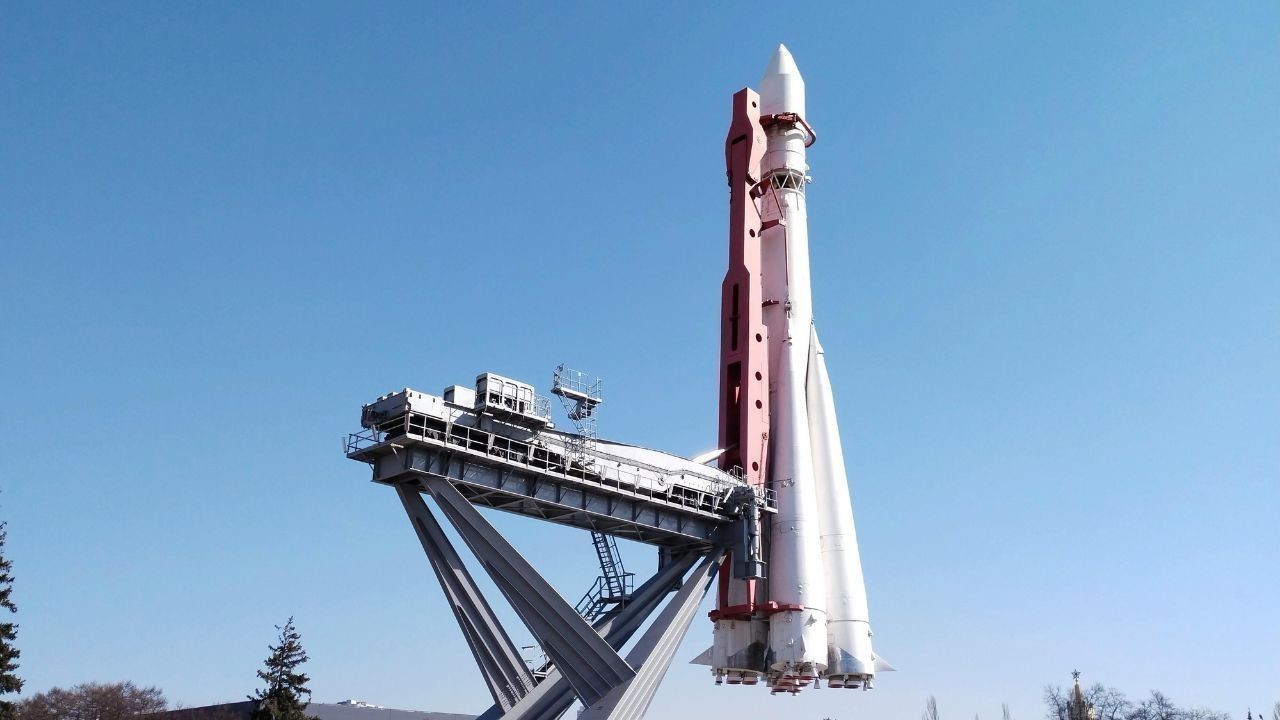
Post by : Zayd Kamal
Human history is a tapestry woven with stories of ancient cultures, monumental achievements, and remarkable innovations. The Oldest Civilizations in the World Through Time offer us a glimpse into how humanity evolved, laid the groundwork for modern society, and shaped the world we know today. From the cradles of civilization in Mesopotamia to the dynasties of Ancient China, the rise and fall of these civilizations tell captivating stories of culture, trade, religion, and ingenuity. Let’s embark on a fascinating journey through time, exploring the oldest civilizations and their lasting impact on the world.
Often referred to as the "Cradle of Civilization," Mesopotamia is one of the earliest known centers of human society. Located between the Tigris and Euphrates rivers in present-day Iraq, Mesopotamia gave rise to some of the oldest known cities, including Ur, Uruk, and Babylon. The Sumerians, who lived in southern Mesopotamia, are credited with developing the first writing system – cuneiform – which helped preserve their knowledge for future generations.
The Sumerians also made incredible advancements in mathematics, astronomy, and law, with the famous Code of Hammurabi being one of the earliest examples of written legal codes. Mesopotamia was a hub of trade and culture, with innovations in irrigation and agriculture laying the foundation for sustained growth in urban societies. The legacy of Mesopotamia can still be seen in our modern systems of governance, language, and infrastructure.
To the west of Mesopotamia, another powerful civilization was rising along the banks of the Nile River – Ancient Egypt. Known for its awe-inspiring pyramids and the iconic Sphinx, Ancient Egypt is a civilization that has captivated the imagination of people for centuries. The Egyptians are perhaps best known for their advancements in architecture, engineering, and medicine, as well as their complex religious beliefs.
The Egyptians believed in a pantheon of gods and practiced elaborate burial rituals, including mummification, which were intended to ensure a successful journey to the afterlife. The Old Kingdom saw the construction of the Great Pyramid of Giza, one of the Seven Wonders of the Ancient World. Over time, Egypt became a powerful empire, with pharaohs like Ramses II and Cleopatra leaving their mark on history.
What made Egypt unique was its ability to maintain a relatively stable society for over three millennia. The Old Kingdom, Middle Kingdom, and New Kingdom all saw flourishing cultures, monumental building projects, and advancements in science and mathematics that influenced not only the ancient world but also the future.
One of the most enigmatic of The Oldest Civilizations in the World Through Time is the Indus Valley Civilization, which flourished around 2500 BCE in what is now modern-day Pakistan and northwest India. Unlike Mesopotamia and Egypt, the Indus Valley remains somewhat mysterious, as much of its writing system remains undeciphered.
What we do know is that the Indus Valley cities, such as Harappa and Mohenjo-Daro, were highly advanced in urban planning. They featured well-organized streets, sophisticated drainage systems, and impressive architecture. These cities were centers of trade, connecting with other ancient cultures, including those in Mesopotamia. The people of the Indus Valley also practiced agriculture, domesticated animals, and produced fine pottery and jewelry. Despite their advancements, the reasons behind the decline of this civilization remain unclear, making it one of the most intriguing ancient mysteries.

Ancient China is another cornerstone in the story of The Oldest Civilizations in the World Through Time. China's rich history spans thousands of years, beginning with the Xia Dynasty around 2100 BCE, followed by the Shang and Zhou dynasties. The Chinese civilization is renowned for its early advancements in writing, metallurgy, and philosophy.
The Shang Dynasty is known for its development of a system of writing that used pictographs, which laid the foundation for the Chinese script still in use today. The Zhou Dynasty saw the rise of Confucianism and Daoism, two of China's most influential philosophies. The Chinese invented key technologies such as paper, printing, and gunpowder, which revolutionized not only China but also the rest of the world.
China’s dynastic system continued for millennia, influencing East Asia and beyond. The Great Wall of China, the construction of which began during the Qin Dynasty, is a testament to the enduring legacy of Chinese engineering and military prowess. Today, the influence of Ancient China is evident in everything from architecture to philosophy to technological advancements.
The ancient Greeks and Romans, though not as old as the Mesopotamians or Egyptians, played a pivotal role in shaping the modern world. Ancient Greece is often considered the birthplace of Western civilization, with contributions in the fields of philosophy, politics, and art. Philosophers like Socrates, Plato, and Aristotle laid the intellectual foundations for much of modern thought, while the concept of democracy, first developed in Athens, continues to influence political systems worldwide.
Following the Greeks, the Romans built one of the most influential empires in history, stretching across Europe, North Africa, and the Middle East. Roman innovations in law, engineering, and architecture are still seen in modern legal systems, roads, and buildings. The fall of the Roman Empire marked the end of the classical era, but its impact on Western culture has remained profound.
The legacies of The Oldest Civilizations in the World Through Time continue to influence modern life. From the alphabet and writing systems of Mesopotamia to the architectural wonders of Egypt and the scientific achievements of the Chinese, these ancient cultures have shaped everything from our governance systems to our art and philosophy. Understanding their histories not only helps us appreciate where we’ve come from but also highlights the shared human experience that transcends time and geography.
In the end, the ancient civilizations of the world laid the foundations for much of the world we live in today. Their stories are not just remnants of the past; they are enduring legacies that continue to inspire and shape the future.
The Oldest Civilizations in the World Through Time help us understand how early societies shaped the world we live in today. These ancient civilizations, like Mesopotamia, Ancient Egypt, Indus Valley, Ancient China, and Ancient Greece and Rome, were the first to build cities, develop writing, and create new ideas. The Oldest Civilizations in the World Through Time also gave us many of the things we use today, such as writing systems, laws, and architectural designs. The Oldest Civilizations in the World Through Time were also very creative, inventing tools, creating artwork, and forming governments. The study of these early civilizations shows us how far humanity has come and reminds us that many of our ideas started a long time ago in The Oldest Civilizations in the World Through Time.
The information provided in this article about The Oldest Civilizations in the World Through Time is for general informational purposes only. The facts and history shared here are based on current knowledge and studies. For the most accurate and detailed research, we recommend exploring more historical sources and references.
Oldest Civilizations, Mesopotamia, Ancient Egypt, Indus Valley, Ancient China, Ancient Greece, Ancient Rome, Cradle of Civilization, Sumerians, Pharaohs, Harappa, Mohenjo-Daro, Dynasties, Great Wall of China, Pyramids, Cuneiform, Civilization Legacy, Ancient Cultures, Historical Contributions, Urban Planning, Ancient Trade, Technological Advancements, Ancient Writing Systems, Engineering Marvels, Ancient Achievements

Ajman’s Superyacht Service Centre Begins Full Operations
Superyacht Service Centre in Ajman is now fully operational, offering advanced refit and maintenance

The Little Things Launches First DIFC Pop-Up Store in Dubai
The Little Things opens its first Dubai pop-up at DIFC, offering premium collectibles, exclusive Fun

Samsung Launches Galaxy S26 Series with Smart AI Features
Samsung unveils Galaxy S26, S26+, and S26 Ultra with powerful AI, pro-level cameras, all-day perform

Fujairah Hosts Inaugural ATP Challenger 50 Tennis Event
Fujairah Tennis and Country Club to host its first ATP Challenger 50 tournament from March 2-15, off

UAE Rejects Sudan Army Claims at UN Council Meet
The UAE has strongly denied allegations by Sudan’s Armed Forces at the UN Human Rights Council, call

Rashmika-Vijay Tie The Knot In Grand Udaipur Wedding
Rashmika Mandanna and Vijay Deverakonda got married in a traditional Telugu ceremony at ITC Mementos

IMF Approves $8.1B Loan to Support Ukraine War Effort
IMF clears $8.1 billion four-year loan for Ukraine, with $1.5B released immediately to support budge

Bank of Baroda Faces Abu Dhabi Legal Battle over NMC Collapse
Bank of Baroda’s involvement in Abu Dhabi litigation tied to the NMC Healthcare collapse raises repu

Top Museum Openings of 2026 Set to Transform Global Tourism
From Los Angeles to Abu Dhabi and Brussels, 2026 brings major museum launches—Lucas Museum, Guggenhe

UAE Tour Highlights UAE’s Strength in Hosting Global Sports Events
Abu Dhabi Sports Council says the successful UAE Tour reflects the UAE’s leading role in hosting maj

EU Seeks Clarity from US After Supreme Court IEEPA Ruling
European Commission urges full transparency from the US on steps after Supreme Court ruling, emphasi

SpaceX Launches 53 New Satellites for Expanding Starlink Network
SpaceX launches 53 Starlink satellites in two Falcon 9 missions, breaking reuse records and expandin

RTA Awards Contract for Phase II of Hessa Street Upgrade in Dubai
Phase II of Hessa Street Development to add bridges, tunnel, and upgraded intersections, doubling ca

UAE Gold Prices Today, Monday 16 February 2026: Dubai & Abu Dhabi Updated Rates
Gold prices in UAE on 16 Feb 2026 updated: 24K around AED 599.75/gm, 22K AED 555.25/gm, and 18K AED

Over 25 Ahmedabad Schools Receive Bomb Threat Email, Authorities Investigate
More than 25 schools in Ahmedabad evacuated after bomb threat emails mentioning Khalistan. Authoriti